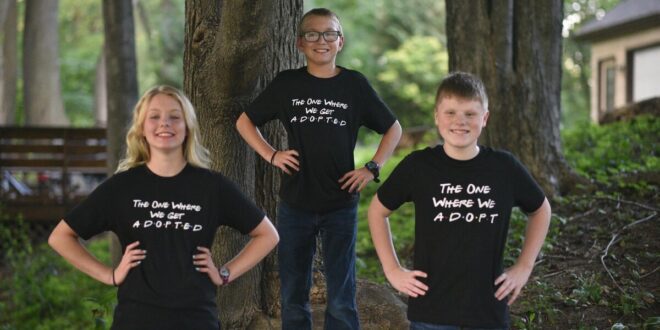Nicole Klug, a foster care case manager in Green Bay, has been deeply affected by the experiences of the children she works with. She remembers the teenage girl who was constantly moved around different counties after the death of her parents, as well as the boy who arrived at her agency still high on drugs after being removed from his drug-infested home. These children needed trauma-informed support to help them move forward, but instead, they ended up in a cycle of foster homes, making it even harder for them to find a way out.
According to Klug, youths in out-of-home care, which refers to court-monitored placement and services for children removed from their homes, are the least likely to have access to mental and behavioral health treatment. Parental consent laws in Wisconsin prevent foster parents from seeking counseling for the children in their care, limiting their ability to address the trauma they have experienced. Caseworkers like Klug see this lack of access to treatment as a barrier to real behavioral change.
A recent report from the American Academy of Pediatrics supports this concern, stating that mental and behavioral health is the largest unmet need for children and teens in foster care. The report emphasizes that the emotional trauma of being removed from familiar surroundings and placed in foster care is deeply traumatizing for these children. This trauma is compounded by ongoing separation, losses, and uncertainty that are inherent in foster care.
As of December 31, 2021, around 7,000 children in Wisconsin have been placed in out-of-home care, accounting for about 0.5 percent of all children in the state. Over 80 percent of these children enter out-of-home care with significant mental health challenges. Additionally, nearly 1,500 children have documented disabilities, with emotional dysregulation being the most prevalent condition.
Emotional dysregulation is a core trait of ADHD and involves behaviors such as angry outbursts, anxiety, depression, substance abuse, suicidal thoughts, self-harm, and other self-destructive behaviors. Even if a child does not enter out-of-home care with a diagnosed mental health condition, the removal from their biological parents and placement in foster care can be traumatic in itself, generating potential mental health needs.
Katie Szerkins, a foster care therapist at Foundations, emphasizes the importance of recognizing that 80 percent of children experience trauma upon entering care. Szerkins, who is also a foster parent, has witnessed firsthand the consequences of not providing young people with the necessary mental health care. Over the years, she has fostered about 50 children and teenagers and adopted two infants.
For Szerkins, the lack of access to mental health services remains a constant challenge for her foster children. Each time, obtaining therapy appointments for her children requires consent from an absentee or incarcerated parent or an overburdened county officer, which can take several months to a year, especially for children who are wards of the state.
Jessica Passamoni, who has worked in various roles as a caseworker and eventually became a foster parent, understands the importance of timely mental health care for children in the system. Passamoni and her husband have fostered three children and recently adopted two of them. They have also faced challenges in accessing mental health care for their foster children.
Under state law, children in foster care do not have a say in their own mental health care. This can be problematic when a child is removed from parental care and traditional family structures break down. Currently, children can only receive psychological care in emergency situations, which has led to a high number of youth being placed in emergency psychiatric beds.
Furthermore, there is a shortage of counselors who are equipped to work with children in foster care. Obtaining a psychological evaluation often involves a year-long waitlist, and expedited services require the consent and presence of a biological parent or legal guardian.
In cases where biological parents are absent or incarcerated, foster parents are left to figure out alternative solutions. Bridget Wirtz, foster care coordinator for Outagamie County Department of Health and Human Services, encourages foster parents to have conversations with parents about the need for counseling or mental health treatment. However, there are instances where parents refuse to provide consent, forcing foster parents to explore other options.
Thinking outside the box has become crucial for foster parents like Szerkins. She recalls a time when she had to address the unusual eating habits of a very thin 6-year-old girl in her care. The girl would eat from the garbage because it was what she was used to, and efforts to encourage her to eat from the cupboards failed. Therapy for this behavior would have required extensive waiting and scheduling, but Szerkins found creative ways to address the child’s mental and emotional needs.
Overall, the lack of access to mental health services for children in foster care creates a concerning cycle. The system is flawed, and the needs of these children are not adequately addressed. Urgent changes are needed to ensure that these vulnerable children receive the support they need to heal and thrive in a safe and healthy environment.
 Mind Uncharted Explore. Discover. Learn.
Mind Uncharted Explore. Discover. Learn.


